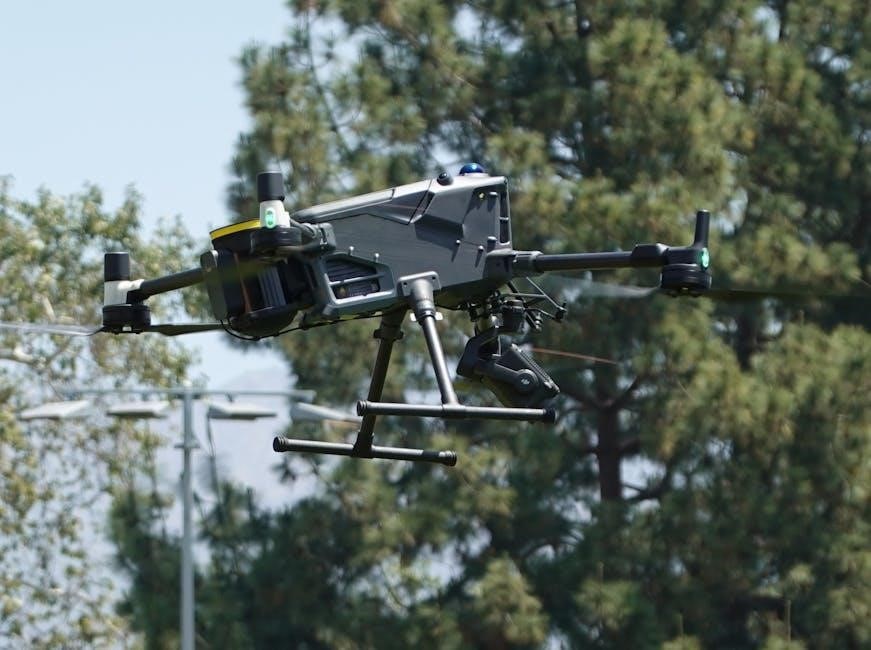Smoke alarm compliance is critical for safety and legal requirements in Queensland. The Australian Standard AS 3786-2014 governs installations, ensuring early fire detection and escape. Compliance certificates are essential for property transactions and rental properties, verifying adherence to regulations. Non-compliance risks fines, legal action, and jeopardizes property sales. Proper installation, maintenance, and certification ensure safety and avoid penalties.
Overview of Smoke Alarm Legislation in QLD
Queensland smoke alarm legislation mandates strict standards to enhance fire safety in homes. Introduced in 2017, the laws require all smoke alarms to comply with Australian Standard AS 3786-2014, emphasizing photoelectric technology. Hardwired 240V or non-removable 10-year battery smoke alarms are mandatory, with existing systems needing upgrades. Compliance certificates are essential for property sales and rentals, ensuring adherence to safety regulations. The legislation also specifies installation locations and interconnectedness for optimal early warning systems. Authorities enforce these rules to prevent fires and protect occupants. Non-compliance can result in fines and legal consequences, making it crucial for homeowners to stay informed and adhere to the requirements. Regular inspections and maintenance are also mandated to ensure functionality and safety.
Importance of Compliance Certificates
Compliance certificates are vital for verifying that smoke alarms meet Queensland’s legal standards. They ensure installations comply with AS 3786-2014 and Building Regulation 2021 requirements. Certificates are mandatory for property sales and rentals, providing proof that smoke alarms are correctly installed and functional. Without a certificate, property transactions can be delayed or invalidated. Certificates also protect homeowners from legal liabilities, ensuring adherence to safety regulations. They must be issued by qualified professionals, such as electricians or certifiers, and include detailed information about the smoke alarms and their compliance. Regular updates and inspections are necessary to maintain certification, ensuring ongoing safety and legal compliance.
Key Dates and Updates in Smoke Alarm Regulations
Key updates in Queensland smoke alarm regulations include the 1 January 2017 mandate requiring compliance with AS 3786-2014 standards. This legislation specified the type, positioning, and interconnectedness of smoke alarms. Prior to this, the 1997 Building Code of Australia introduced hardwired smoke alarms but with different location requirements. The Building Regulation 2021 further enforced hardwired, interconnected smoke alarms in new dwellings. These updates aim to enhance fire safety and ensure early detection. Property owners must stay informed about these regulatory changes to avoid penalties and ensure compliance. Regular updates and inspections are crucial to meet evolving safety standards and legal requirements.

Legislation and Standards Governing Smoke Alarms
Queensland smoke alarm legislation mandates compliance with Australian Standard AS 3786-2014, enforced from 1 January 2017. The Building Regulation 2021 requires hardwired, interconnected smoke alarms in new dwellings.
2017 Legislation Requirements for Smoke Alarms
The 2017 legislation in Queensland mandates strict requirements for smoke alarms, ensuring enhanced fire safety. All smoke alarms must comply with Australian Standard AS 3786-2014, prioritizing photoelectric technology. Hardwiring is compulsory for new installations, with interconnected systems to ensure comprehensive coverage. Existing smoke alarms must be upgraded if they don’t meet these standards. Compliance certificates are required for property sales and rentals, verifying that all smoke alarms are correctly installed and maintained. These regulations aim to provide early warning systems, reducing fire risks and ensuring quick evacuation. Proper documentation and regular inspections are vital to avoid penalties and legal consequences.
Australian Standard AS 3786-2014 Compliance
The Australian Standard AS 3786-2014 sets strict guidelines for smoke alarms, ensuring reliability and effectiveness in fire detection. Compliance requires smoke alarms to be photoelectric, as they are more effective at detecting smoldering fires. Ionisation sensors are prohibited due to slower response times. All smoke alarms must be no more than 10 years old and meet specific testing and performance criteria. Hardwiring or non-removable 10-year battery-powered alarms are mandatory for new installations. This standard ensures consistent and reliable fire safety across Queensland properties, reducing risks and saving lives. Adherence to AS 3786-2014 is non-negotiable for compliance certificates, ensuring homes are protected with the latest safety technology.
Building Regulation 2021 and Smoke Alarm Provisions
The Building Regulation 2021 enforces strict smoke alarm provisions, mandating hardwired, interconnected smoke alarms in specific locations for new dwellings. This regulation ensures seamless fire detection and evacuation. Existing properties must comply with updated standards, particularly when renovations or replacements occur. The regulation aligns with the Australian Standard AS 3786-2014, requiring photoelectric smoke alarms for enhanced fire detection. Non-compliance can result in penalties, emphasizing the importance of adherence. Property sellers must also lodge a Form 24 with the Queensland Land Registry Office, confirming compliance. These provisions aim to enhance fire safety and streamline compliance processes, ensuring all Queensland homes meet current safety standards effectively.

Types of Smoke Alarms and Installation Requirements
Queensland requires photoelectric smoke alarms, hardwired or non-removable 10-year battery types, interconnected for enhanced safety. Installations must meet Australian Standard AS 3786-2014, ensuring optimal fire detection and compliance.
Hardwired 240V Smoke Alarms
Hardwired 240V smoke alarms are a reliable and interconnected option, ensuring continuous power supply. They must be photoelectric, complying with AS 3786-2014, and interconnected for whole-home coverage. These alarms are mandatory in new Queensland homes and replacements for old hardwired units. They offer superior fire detection and are less prone to tampering. Installation requires a licensed electrician, ensuring safety and compliance with Building Regulation 2021. Hardwired systems provide early warnings, enhancing escape time during emergencies. Proper testing and maintenance are essential to maintain functionality and meet legal requirements, avoiding penalties and ensuring home safety.
Non-Removable 10-Year Battery Smoke Alarms
Non-removable 10-year battery smoke alarms are a convenient option for Queensland homes, offering a long-lasting power source without the need for frequent replacements. These alarms must comply with Australian Standard AS 3786-2014 and are photoelectric, ensuring reliable fire detection. They are ideal for properties where hardwiring is not feasible. Installation must follow the Building Regulation 2021, with placement in specific locations for optimal coverage. While the battery life is extended, regular testing is still required to ensure functionality. These alarms are a cost-effective solution for homeowners seeking compliance with smoke alarm legislation, providing peace of mind and meeting legal requirements for safety.
Photoelectric Smoke Alarms
Photoelectric smoke alarms are mandated in Queensland homes due to their superior detection capabilities, particularly for smoldering fires. They operate by detecting particles in the air using a light beam, reducing false alarms compared to ionization models. Compliance with Australian Standard AS 3786-2014 is essential, ensuring reliability and safety. These alarms must be installed in specific locations as per the Building Regulation 2021. Homeowners are required to replace outdated models with photoelectric types to meet current legislation. Regular maintenance and testing are crucial to ensure functionality. Photoelectric alarms are a critical component of Queensland’s smoke alarm compliance standards, providing enhanced protection against fire hazards and ensuring adherence to legal requirements for safety.
Interconnected Smoke Alarm Systems
Interconnected smoke alarm systems are required in all new Queensland homes, ensuring enhanced safety through simultaneous activation. These systems link smoke alarms via wiring or wireless technology, providing an early warning in case of fire. Hardwired systems are mandated for new dwellings, while existing homes must upgrade to interconnected models by 2027. Battery-powered systems are permitted only if they meet specific standards, such as non-removable 10-year batteries. Proper installation by licensed electricians is crucial to ensure compliance and reliability. Regular testing and maintenance are necessary to guarantee functionality and meet certification requirements, ensuring continuous protection for residents and adherence to Queensland’s safety regulations.

Smoke Alarm Compliance Certificate QLD
A Smoke Alarm Compliance Certificate QLD ensures properties meet safety standards, confirming installations comply with legislation and protecting residents from fire hazards effectively always required.
What is a Smoke Alarm Compliance Certificate?
A Smoke Alarm Compliance Certificate QLD is an official document verifying a property’s smoke alarms meet Queensland’s safety legislation and standards. It confirms installations comply with AS 3786-2014 requirements, including type, placement, and functionality.Issued after inspection by certified professionals, this certificate is essential for property transactions and rental agreements, ensuring safety and legal adherence. The certificate details the smoke alarms’ condition, type, and location, guaranteeing they provide early fire detection and warning. It protects residents and complies with state fire safety regulations, avoiding potential penalties and ensuring a safe living environment. This document is crucial for property owners, sellers, and managers to demonstrate compliance with Queensland’s smoke alarm laws.
When is a Compliance Certificate Required?

A Smoke Alarm Compliance Certificate is required for property sales, rentals, and new constructions in Queensland. Sellers must provide it to confirm smoke alarms meet legal standards, while landlords need it to ensure tenant safety. The certificate is mandatory when lodging a Form 24 with the Queensland Land Registry Office, verifying compliance with smoke alarm legislation. It is also required for new dwellings, after installing or replacing smoke alarms, and when requested by local councils or certifiers. This document ensures all smoke alarms are correctly installed, functional, and meet Australian Standard AS 3786-2014, safeguarding residents and avoiding legal penalties. Compliance certificates are essential for maintaining legal and safety standards in Queensland properties.
How to Obtain a Compliance Certificate
To obtain a Smoke Alarm Compliance Certificate in Queensland, property owners must ensure their smoke alarms meet the required standards. The certificate can be created using an approved form or a commercially available template, provided it complies with the Electrical Safety Regulation. It must be issued by a licensed electrician or certifier after inspecting the smoke alarms. The certificate should detail the property address, type of smoke alarms installed, and confirmation of compliance with AS 3786-2014. Property sellers must lodge a Form 24 with the Queensland Land Registry Office, which includes the compliance certificate. Templates and forms are available from the Queensland Building and Construction Commission (QBCC) website, ensuring a smooth process for property owners to meet legal requirements.
Example of a Smoke Alarm Compliance Certificate
An example of a Smoke Alarm Compliance Certificate in Queensland includes specific details to verify adherence to regulations. The certificate typically outlines the property address, the number and type of smoke alarms installed, and their compliance with Australian Standard AS 3786-2014. It also specifies whether the alarms are hardwired, battery-powered, or interconnected. The document must be signed by a licensed electrician or certifier, confirming that the installation meets all legal requirements. A sample certificate is available from the Queensland Building and Construction Commission (QBCC) or can be created using approved templates. The certificate is usually provided in PDF format for easy sharing and submission to relevant authorities, such as the Queensland Land Registry Office, ensuring a smooth process for property transactions.

Process for Ensuring Compliance
Ensure smoke alarms meet Queensland standards by inspecting existing units, replacing non-compliant ones, and maintaining records. Testing and documentation are crucial for verification and legal requirements.
Steps to Check Existing Smoke Alarms
To ensure smoke alarms comply with Queensland regulations, inspect each unit for proper installation and functionality. Verify they meet AS 3786-2014 standards, are photoelectric, and less than 10 years old. Check for correct placement in bedrooms and living areas. Test each alarm by pressing the test button and ensuring they interconnect if required. Replace batteries in non-hardwired units annually. Document findings, noting any non-compliant alarms needing replacement. Use a compliance certificate template to record results, ensuring all details align with legal requirements. Regular inspections prevent fines and ensure safety, especially during property transactions or rentals.
Replacing Non-Compliant Smoke Alarms
Replace non-compliant smoke alarms with models meeting AS 3786-2014 standards, ensuring they are photoelectric and interconnected. Hardwired 240V alarms must be upgraded to photoelectric types. Battery-powered alarms should have non-removable 10-year batteries. Identify non-compliant units during inspections and replace them promptly. Use licensed electricians for hardwired installations to avoid safety risks. Document replacements in compliance certificates, noting dates and alarm types. Proper replacement ensures legal adherence and enhanced fire safety. Failure to replace non-compliant alarms can lead to fines and legal consequences, especially for property owners and landlords. Always verify new installations meet Queensland’s updated regulations before issuing compliance certificates.
Testing and Maintenance Requirements
Regular testing and maintenance are crucial for smoke alarm functionality. Test alarms monthly by pressing the test button and ensuring a loud, clear sound. Clean dust and debris to prevent false alarms. Replace batteries annually for non-hardwired units, except 10-year sealed models. Inspect alarm condition during rental inspections or property sales. Keep records of maintenance and testing as part of compliance documentation. Non-compliance due to poor maintenance can result in fines. Always follow manufacturer guidelines for upkeep and replacements. Proper care ensures alarms function correctly, providing vital early warnings in emergencies. Neglecting maintenance risks safety and legal repercussions for property owners and managers.
Documentation and Record-Keeping
Proper documentation and record-keeping are essential for smoke alarm compliance in Queensland. Property owners must maintain records of smoke alarm installations, testing, and maintenance. This includes compliance certificates, test results, and any repairs or replacements made. For rental properties, landlords must provide tenants with a copy of the compliance certificate and keep records for at least five years. Sellers must also ensure all documentation is up to date and accessible during property transactions. Accurate and detailed records help avoid legal issues and penalties, ensuring compliance with Queensland’s smoke alarm legislation. Proper documentation demonstrates adherence to safety standards and regulatory requirements, protecting both property owners and occupants.

Role of Authorities and Certifiers
Queensland authorities like QBCC oversee smoke alarm compliance, while local councils enforce standards. Certifiers issue compliance certificates, ensuring installations meet legal requirements. Electricians handle installations and testing.
Queensland Building and Construction Commission (QBCC)
The Queensland Building and Construction Commission (QBCC) plays a crucial role in enforcing smoke alarm compliance across the state. As the primary regulatory authority, the QBCC oversees the implementation of smoke alarm legislation, ensuring that all properties meet the required standards. Their responsibilities include monitoring compliance, investigating non-compliance cases, and educating stakeholders about legal obligations. The QBCC also provides resources and templates for smoke alarm compliance certificates, helping property owners and managers understand their duties. Additionally, they work closely with local councils, fire services, and certifiers to ensure consistent enforcement of regulations. Failure to comply with QBCC requirements can result in penalties, making their role essential for maintaining fire safety standards in Queensland.
Local Council Requirements
Local councils in Queensland play a vital role in enforcing smoke alarm compliance within their jurisdictions. They are responsible for ensuring that all properties, including residential and rental premises, meet the mandated safety standards. Councils typically require property owners to install smoke alarms that comply with Australian Standard AS 3786-2014 and are interconnected for maximum effectiveness. Inspections may be conducted to verify compliance, and failure to meet requirements can result in fines or legal action. Additionally, councils often provide resources and guidelines to help property owners understand and fulfill their obligations. Local council requirements may vary slightly, so it’s essential to consult with your specific council for detailed information and updates on smoke alarm compliance.
Electricians and Certifiers Responsibilities
Electricians and certifiers play a crucial role in ensuring smoke alarm compliance in Queensland. Electricians are responsible for installing smoke alarms that meet the Australian Standard AS 3786-2014, ensuring hardwiring and interconnectivity as required. They must test systems to confirm proper functionality. Certifiers, on the other hand, inspect installations to verify compliance with legislation and issue compliance certificates. They ensure all documentation is accurate and meets legal standards. Both professionals must stay updated on regulatory changes to provide correct advice. Their collaboration ensures properties are safe and legally compliant, particularly for rentals and property transactions. Proper certification by these professionals is essential for avoiding penalties and ensuring public safety.

Penalties for Non-Compliance
Non-compliance with smoke alarm laws in Queensland can result in significant fines and legal action. Property owners may face penalties for failing to meet standards, ensuring safety.
Fines and Penalties for Non-Compliance
Failing to comply with smoke alarm regulations in Queensland can lead to substantial fines. Property owners may face penalties if smoke alarms are not installed or maintained properly. Non-compliance can result in financial repercussions, legal actions, and potential risks to safety. It is crucial to ensure all smoke alarms meet the required standards to avoid these penalties and maintain compliance with the law.
Legal Consequences for Property Owners
Property owners in Queensland face legal consequences for non-compliance with smoke alarm regulations. Failure to meet the required standards can result in fines and legal action. Non-compliance may also impact property sales, as buyers or real estate agents may request proof of compliance. Additionally, property owners could be held liable in the event of a fire if smoke alarms are not properly installed or maintained. Compliance certificates are essential to avoid legal repercussions and ensure the safety of occupants. It is crucial for property owners to adhere to the legislation to prevent financial and legal penalties, as well as potential risks to life and property.

Impact on Property Sales and Rentals
Smoke alarm compliance significantly impacts property sales and rentals in Queensland; Sellers must provide a compliance certificate as part of the sale process, while landlords must ensure all rental properties meet current standards. Failure to comply can delay settlements or result in penalties. Real estate agents often request proof of compliance before listing properties, making it a critical factor in the marketability of a home. For rentals, non-compliance can lead to disputes with tenants and potential fines. Ensuring smoke alarms meet legal requirements is essential for smooth transactions and maintaining good tenant-landlord relationships. Compliance is not just a legal obligation but also a practical necessity in Queensland’s property market.

FAQs and Common Queries
Common questions include whether a compliance certificate is needed for rentals, if self-installation is allowed, and how often smoke alarms should be inspected for certification purposes.
Do I Need a Smoke Alarm Compliance Certificate for Rentals?
Yes, property owners in Queensland are legally required to obtain a Smoke Alarm Compliance Certificate for rental properties. This certificate ensures smoke alarms meet AS 3786-2014 standards, are correctly installed, and functioning properly. It verifies compliance with the Building Fire Safety Regulation 2008 and the Residential Tenancies and Rooming Accommodation Regulation 2009. The certificate must be provided upon commencement of a tenancy agreement. Non-compliance can result in penalties and legal consequences. Property managers and owners must ensure all smoke alarms are photoelectric, interconnected, and hardwired or have non-removable 10-year batteries. Regular inspections and maintenance are also mandatory to maintain compliance and ensure tenant safety.
Can I Install Smoke Alarms Myself?
Installing smoke alarms yourself is possible, but strict compliance with Queensland legislation and standards is required. Smoke alarms must meet Australian Standard AS 3786-2014, be photoelectric, and interconnected. Hardwired 240V smoke alarms should be installed by a licensed electrician to ensure safety and compliance. For battery-powered smoke alarms, ensure they are non-removable 10-year batteries and installed in correct locations. DIY installations must adhere to the Building Fire Safety Regulation 2008 and the Residential Tenancies and Rooming Accommodation Regulation 2009. However, hiring a certified professional is recommended to avoid non-compliance risks and ensure proper functionality. Incorrect installation can lead to fines and legal consequences, especially for rental properties.
How Often Should Smoke Alarms Be Inspected?
Smoke alarms in Queensland must be inspected regularly to ensure compliance with safety standards. According to the Australian Standard AS 3786-2014, smoke alarms should be tested monthly by pressing the test button to confirm they are functioning properly. Additionally, annual inspections are recommended to check for dust, debris, or damage that may impair functionality. Property owners and landlords are responsible for ensuring these inspections are conducted, particularly in rental properties. Failure to maintain smoke alarms can result in penalties and legal consequences. Regular inspections are crucial for early fire detection and escape, aligning with Queensland’s smoke alarm legislation. Compliance certificates often require proof of these inspections.
Ensuring smoke alarm compliance in Queensland is vital for safety and legal adherence. By understanding legislation, maintaining proper installations, and obtaining necessary certificates, property owners can avoid penalties and protect lives. Regular inspections and certifications are essential, as outlined by Australian Standard AS 3786-2014. Compliance not only prevents fines but also ensures functional smoke alarms during emergencies. Property sellers and landlords must stay informed to meet all requirements, safeguarding their investments and tenants. Adhering to these standards fosters a safer community and avoids legal complications. Proactive maintenance and certification are key to fulfilling Queensland’s smoke alarm regulations effectively.